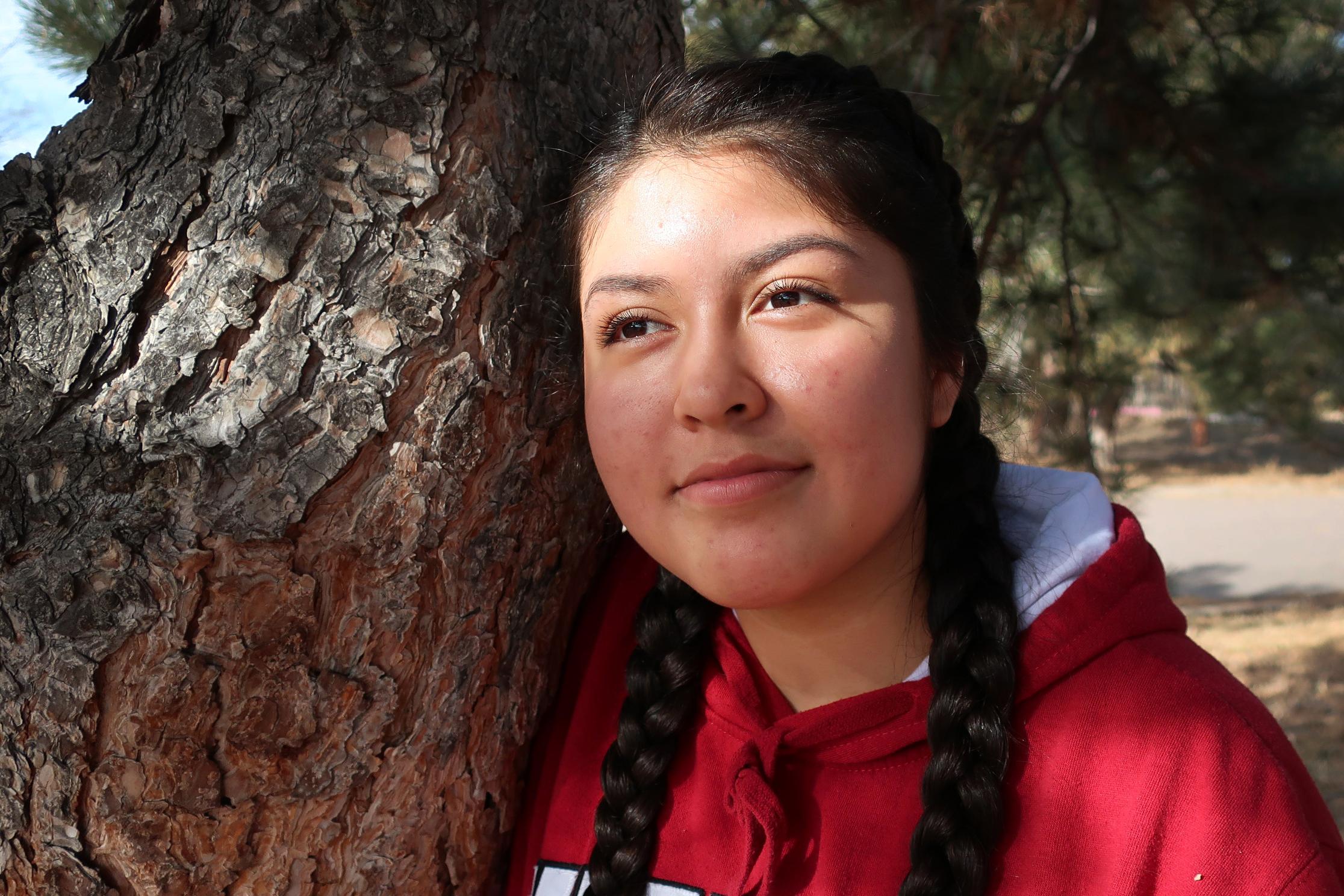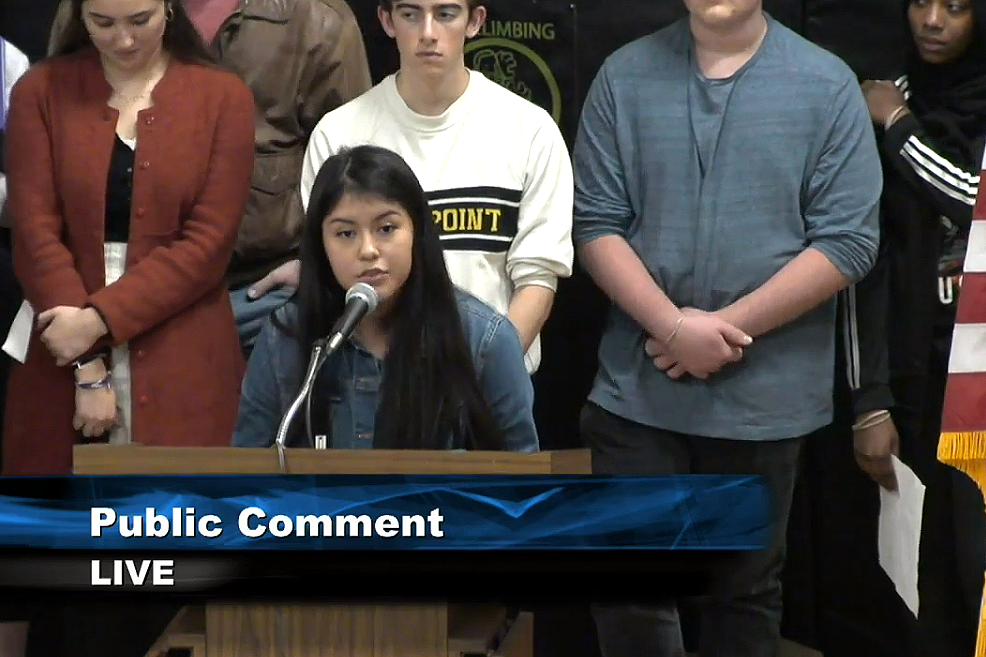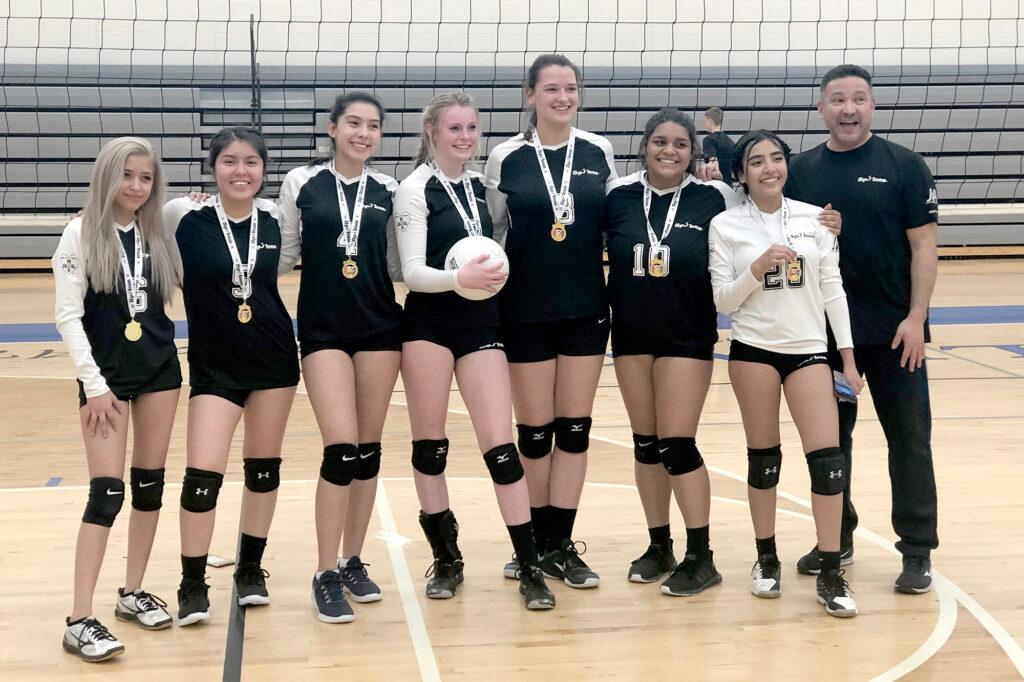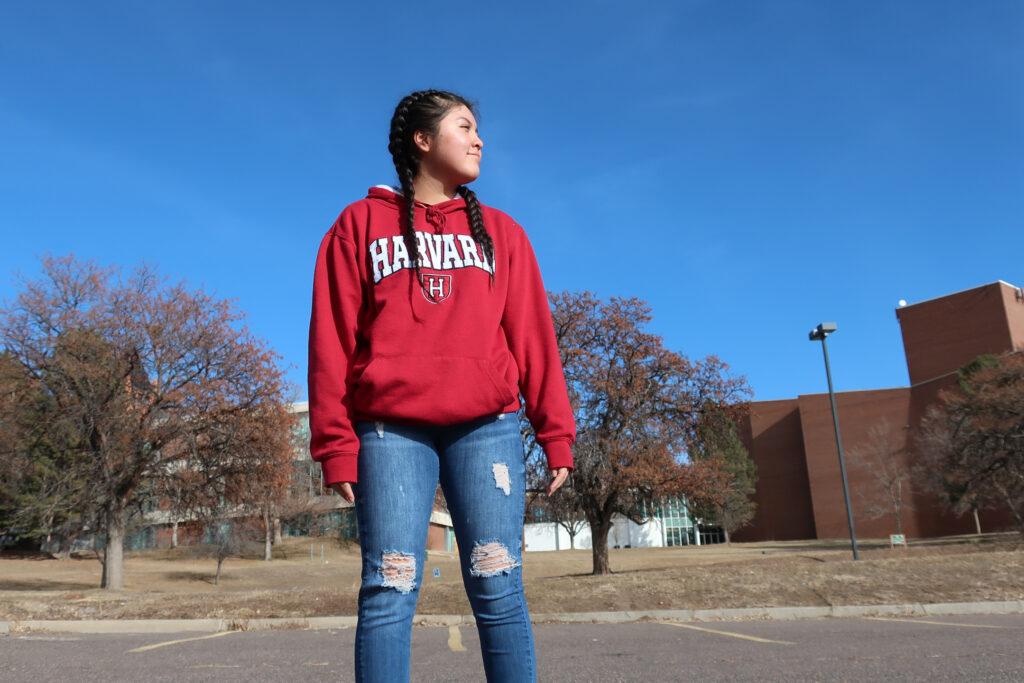
“Everything sucks sometimes but it’s not forever.”
Daijah, a 16-year old from Denver, made that pithy comment on a voice memo on her iPhone months ago, well before the COVID-19 pandemic. But an insight like that one — discovered on her own long and twisting mental health journey prior to the pandemic — is helping her cope now.
Like many of her peers, Daijah struggles with depression and anxiety disorder, and unraveling why she feels the way she does has been mostly a solitary struggle.
We’re just using her first name to maintain her privacy. Her story is part of CPR’s Teens Under Stress series.
Daijah made dozens of audio tapes for CPR over the course of a year, long enough to see her develop a new perspective. Those insights and practicing the coping techniques she’s learned from others are helping her now.
Though the full extent of the pandemic’s effect on teens’ mental health isn’t known, teens are reporting rising rates of mental health struggles during the pandemic. Surveys early in the pandemic showed increases in teens’ stress and mental health concerns. Between political polarization and isolation, many teens say they are struggling.
I met Daijah more than a year ago when she was 15, about a year or so after the worst period of her life.
There were a lot of factors, but the political climate made her feel worse. Daijah arrived in the U.S. illegally when she was around two years old. The rhetoric around immigration after the 2016 election took a toll for a long time.
“I was struggling with myself. I was struggling with my education,” she said. “I didn't know if I was even worthy enough of being here. I was like, ‘Are they right? Am I what they say?’ I can't go to college now. I won't be able to get a job. Am I just like a burden here? It was very hard for me to comprehend that and to very much realize that I wasn't what they said I was.”
She surrounded herself with her community and gradually realized she had power over who she was and what she was capable of. She wants to be a doctor. Daijah said she knew she’d have to work 10 times harder than anyone born here. She wanted to make all her family’s sacrifices worth it. Though immigrant children have a right to an education, just 54 percent of undocumented youth have a high school diploma. Only an estimated five to 10 percent of the 65,000 undocumented high students who graduate each year go on to college.

There can be are social obstacles such as the negative stigma associated with illegal immigration and inaccurate information about eligibility for college. There are enormous financial stressors, including high poverty rates and lack of access to some forms of financial aid for undocumented students. Other legal barriers indirectly affect college access such as not having a path to citizenship and reduced ability to work. But many do achieve academic success in college.
“My stress levels were so high,” Daijah said. “I just had so many standards for myself that I knew were not achievable but I thought I could do.”
It wasn’t just the political environment, and the conflicting and contradictory feelings many undocumented adolescents feel of belonging and being rejected. In her audio tapes, she explains ongoing turmoil with friends and family.
“I just really felt out of place. I really did not feel like I belonged or fit in.”
Daijah’s mom wanted to help her daughter but it was hard to understand what was happening. Daijah struggled to find help at school. Her depression got worse, fueled by a habit of blaming herself for her troubles.
“I was my own enemy, I was my own bully,” she said.
She hit bottom. Her mom helped her find a counselor at the Mental Health Center of Denver, taking a long bus ride with her to appointments. By her eighth-grade year, Daijah began to recover. She learned techniques to distract from negative thoughts like untying a frozen towel. She did talk therapy, learning healthy coping mechanisms, breathing, journaling, and she learned to accept herself more.
“It really helped me come to terms with how I was treating myself. And slowly but surely my counselor and I figured out how to get myself to love myself more,” she said. “I would have this reminder on my phone that was like, ‘tell yourself something nice today.’ It was very funny and I thought it was very weird at the beginning. But on the bad days it really did help. It did.”
But getting better is a long journey. On her audio tapes, she showed me her life, played the music she likes, like Korean pop, and revealed her ups and downs. Pre-pandemic, sometimes she was happy, out with friends, eating at McDonald’s, taking long naps, playing volleyball.

But then one of her closest friends moved away.
“I don’t know how I’m going to handle this,” she cried softly into a recording. “Overall I’m just super-stressed and super sad. I don’t know what to do.”
A tendency to blame herself resurfaced. She often felt alone and misunderstood. Sometimes on the tapes, she told herself to practice her breathing and wait it out.
“It will all pass. The bad feelings won’t last forever,” she said.
But school was a high-pressure, exhausting routine.
“Chemistry, man, like what the heck, that class is giving me so many grey hairs,” she sighed into the voice memo. Advanced placement chemistry, as a sophomore, pushed her anxiety levels off the charts.
During these times, Daijah sounded exhausted and yawned a lot on the tapes. As the tapes went on, though, she talked more about the bright spots, what helps her.
“I’m such a proud cat mom,” she laughed, with her cat meowing in the background. “They’ve helped so much! My girl cat, her name is Lupita. There’s this one day I was bawling my eyes out and she just comes and sits on my lap, it was the most perfect moment in the world — I realize that.”
Daijah also threw herself into helping others in a campaign to bring more mental health support and training to Denver schools, and to reduce the stigma surrounding mental health.
“It brings me peace because in a way I’m healing myself and I’m trying to spread that healing towards others.”
By sophomore year Daijah still was having bouts of depression, but she’d learned to live with it and said it is not as detrimental.
“I've reached some sort of peace within myself. I don’t know how. It seems so constant, right? Like the pain and the stress and school and family expectations.”
Then COVID-19 hit. The isolation was really hard at first. Over the summer she figured out a rhythm to dividing up her time and making the days go by. But then school started again and Daijah found it hard to adjust: No volleyball, no extracurriculars, no being around people all day.

“Going from that to nothing — it’s really hard to get used to and especially since my classes are way harder this year and the learning style is way different,” she said. “It’s just very stressful right now. I just miss the way things were.”
She said it’s a battle between finding motivation when everything in the world seems messed up, and not wanting to fail. She still goes to therapy, writes poetry about how she’s feeling. Listening to Korean pop is a huge coping mechanism. One of her favorites is BTS’s “Spring Day.”
“It talks about even though you’re in hard times like in winter, you’ll reach the spring where things are brighter, things are easier,” Daijah said. “The whole moral of the song is comforting the listener.”
Even in August, winter is here
My heart makes time run
Like a Snowpiercer left alone
I wanna hold your hand
And go to the other side of the earth
To end this winter
How much longing
Has to fall like snow
For the spring days to come?
If I wait a little longer
If I stay up a few more nights
I’ll go see you
I’ll go pick you up
Past the end of this cold winter
Until the spring comes again
Until the flowers bloom again
Stay there a little longer
Stay there
Translated by Yuto_da on Wattpad
The song’s theme of change underscores something else that helped Daijah understand herself: that her feelings aren’t permanent. Making voice memos as part of this story helped her hear that.
“For the time that I did this it healed,” she said. “It allowed me to heal and to become more self-aware.”
Even talking into her phone alone, she said, it felt like someone was listening. It was also this raw depiction of her emotions and how they change over time — something that’s hard for teenagers to see.
That’s Daijah’s central message to other teens who are struggling:
“The wave will pass, where you feel like it’s all OK,” she said. “It’s a process of learning and loving yourself … In the end we're all human and we all experience some sort of pain and some sort of sadness and that is okay. You’re loved, you’re needed, you’re valued and you do belong.”
It’s something she wished she knew when she was 14 years old: “that it wouldn’t be like that forever, that there would be more opportunities for me to bloom, for me to heal, that I just needed to keep pushing through, you know?”
She’s also cautiously optimistic for a more stable future. In June, a Supreme Court ruling cleared the way for her to apply for the DACA program allowing undocumented immigrants to work and study in the U.S. She said she has to have faith that the country will be a more welcoming place by the time she’s ready to enter college.
“Yeah, I just have to have trust in those people and have faith in humanity," she said. "Hopefully one day a good old person is going to come and care about people like me, but until then I'll like, I'll hang on, you know?”








